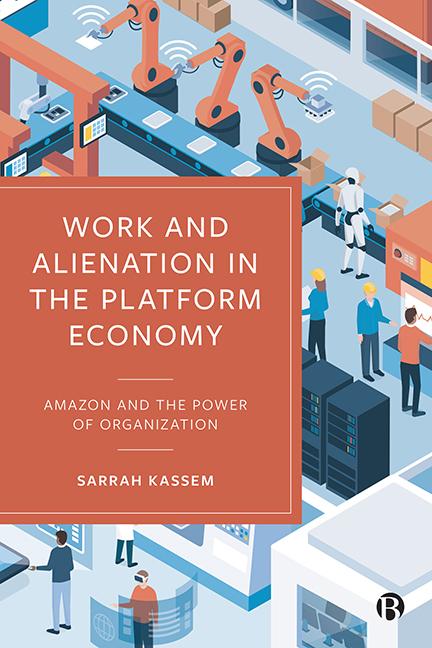2 - How to Study Alienation: Marx’s Four Relations
Published online by Cambridge University Press: 18 January 2024
Summary
Worker-centered research allows us to grasp workers as subjects with agency who have the capacity to act individually or collectively and resist their exploitation and oppression. In doing so, they can shape their world, social change and transformation, and thereby history. By humanizing workers and acknowledging their struggle and attempts to bring about change, we can contribute to an understanding of history that is dynamic rather than one that dismisses agency and presents itself as inevitable. To examine the world of work and workers in the platform economy, it is important first to establish an analytical framework grounded in a historical materialist and dialectical approach that contextualizes the political–economic, social and technological conditions in which labor and capital are situated. This chapter focuses therefore on the relations of alienation to shed light on the ways in which capitalism fragments and atomizes workers in their individuality and collectivity and inhibits their organization. Alienation provides part of the explanation of why workers may not organize, but an analytical framework that stops at this point risks falling into the traps of determinism and regarding alienation as all-encompassing. As Ollman states, “it is not enough to treat people as embodiments of social-economic functions” occupying idle, passive and submissive positions with no agency to affect the course of history (1987: 64). In Chapter 3 I bring agency back into the analysis to examine how workers struggle against capital despite their alienation and mobilize their power resources. Just as the relations of alienation come to express themselves differently in relation to the nature of the platform and of the work, so too does the organization of the platform in turn relate to the ways in which workers act and express their agency within their material contexts.
Historical materialism, dialectics and the labor theory of value
Unlike Hegel, who regards the ‘idea’ as creating the world, Marx argues that “the ideal is nothing but the material world reflected in the mind of [the hu]man, and translated into forms of thought” (Marx, 1977: 102). I regard historical materialism as forming my theoretical foundation, as I conceptualize the development of material production, and thereby society, as the guiding force of history.
- Type
- Chapter
- Information
- Work and Alienation in the Platform EconomyAmazon and the Power of Organization, pp. 15 - 23Publisher: Bristol University PressPrint publication year: 2023



